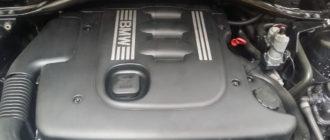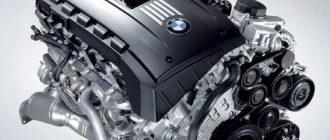Bavarian car manufacturers have developed various options for powertrains. Some internal combustion engines even fall into the category of millionaires. The range of engines is enormous. Many BMW engines stand out from competitors with incredible reliability and high quality.

The Bavarian concern is rightfully considered one of the leaders in the global automotive industry. The brand is exploring new technological solutions, offering drivers cars that are completely unique in their characteristics. The quality of power units execution is not inferior and in many ways surpasses other brands.
The tensioner and chain of engines can cover up to 300,000 km. There are cases where these parts fail much easier. Repairing «Bavarians» can be costly. However, BMW engines, when properly operated, are capable of covering hundreds of thousands of kilometers.
BMW Petrol Engines
The family of the company's petrol engines has been enriched with several unique installations over the past 15 years. Each has its own pros and cons:
- 8i N42, 2.0i N46;
- 6i N43, 2.0i N43 B20;
- 0-2.8i M52;
- 2, 2.5 and 3.0 M54;
- 5i, 3.0i N52.
Petrol engines are installed in various car models. They can be found in compact cars as well as in rugged SUVs.
1.8i N42, 2.0i N46
The power units were produced from 2001 to 2007. Atmospheric «fours» were equipped with multi-point fuel injection. They were used in compact cars and mid-range models.
All engines received a chain-driven timing drive and a variable valve timing system. The models automatically change the lift height of the intake valves. This system became an original replacement for the throttle valve. With this innovation, fuel consumption was reduced by approximately 1.5 liters.
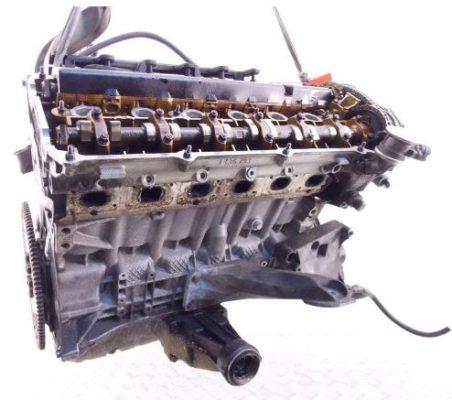
The peculiarity of these installations is excellent adaptation to gas.
These models are capable of covering 200-400,000 km. When converted to gas, there is a risk of damaging the cylinder head and valves. Minimizing potential problems can only be achieved by turning to professional workshops.
This BMW engine is perfect for the average consumer who does not have large financial resources.
BMW Engines 1.6i N43, 2.0i N43 B20
Each engine is equipped with direct gasoline injection. The power units have reduced fuel consumption and are known for their reliability. These engines are ideal for BMW engine enthusiasts who operate their cars in gentle conditions. The units are perfect for highway driving.
Issues include reduced timing chain life. Rapid tensioner loosening is particularly relevant in models produced before 2009. Coils can also fail, causing uneven engine operation and reduced power output.
Uncharacteristic problems for the «fours» also include fuel pump failure, manifested by a lack of power at higher RPMs.
These power units are used in BMW and Peugeot cars. It is not recommended to convert these power units to gas.
2.0-2.8i M52
The debut of these BMW engines was in 1994. Such power units were installed in 3 Series cars. Manufacturers used an aluminum block for the engines, reducing the unit's weight by 20 kg. Connecting rods and exhaust manifolds were changed. The overall engine weight decreased by 30 kg.
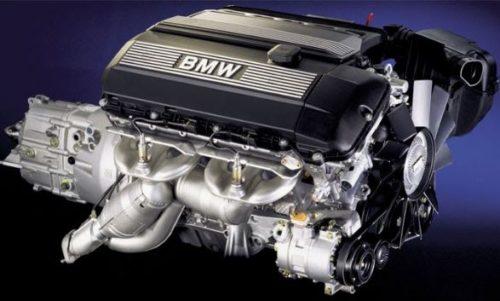
Later, manufacturers updated the models by introducing a variable valve timing system. This did not affect performance, but improved performance at low and medium revs.
The problem with these types of BMW engines is their sensitivity to overheating. It may be a blown head gasket or crack. Often, these failures cannot be repaired, and the engine will need to be replaced.
Uneven operation can occur due to a faulty camshaft sensor. This results in long engine start-up. In rare cases, models suffer from oil consumption. This factor is not present in new engines, but occurs in older units.
BMW Engines 2.2, 2.5 and 3.0 M54
Some of the best straight-six engines from the Bavarian concern. The models were introduced in 2000. These BMW engines demonstrate good efficiency and stable operation. However, fuel economy is not their strong suit. The engines were discontinued in 2007.
Failures are possible but more likely to occur after record mileage. Older engines tend to have significant oil consumption issues due to increased wear and tear on the structure.
Repair costs for these power units are quite reasonable. These engines are recommended for drivers who prefer not to spend a lot on car restoration.
2.5i, 3.0i N52
These BMW engines were introduced into Bavarian cars starting in 2004. To reduce the weight of the unit, the block was made of a magnesium-aluminum alloy. Variable valve timing and lift systems were applied.
During operation, the main «weak spots» were identified. The problem lies in the hydraulic lifter noise. The cooling system pump often fails, requiring the driver to invest around 15,000 rubles in repairs.
The distinctive feature of these models is fuel economy and decent power. Drivers choose these engines for their characteristic sound during operation.
Moreover: Characteristics of BMW M57 Engines
BMW Diesel Engines
Various BMW diesel engines are also of great interest to the public. The engines come in 4 versions:
- 0d M47;
- 0d N47;
- 5d, 3.0d M57;
- 0d N57.
Each unit has its own set of distinctive features. Let's explore all variations in detail.
2.0d M47
Production of these engines started in 1998 and ended in 2007. Manufacturers once revised the engine, increasing the final power and adding balancing shafts. The geometry of the intake manifold is variable. Air flow regulation depends on engine speed.
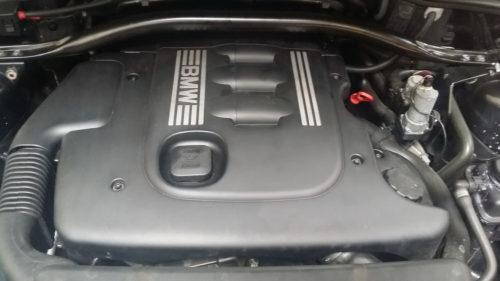
In the second generation of these BMW engines, a turbocharger was introduced. Both models were equipped with a chain-driven timing drive. The unit was placed in a convenient location, significantly facilitating repairs. The power unit shows good performance and at the same time saves the car owner's wallet from excessive fuel costs.
The intake manifold flaps periodically break. This is most often caused by cylinder head deformation. The model suffers from rapid turbocharger failures. A worn pulley is also frequently observed.
BMW Engines 2.0d N47 Series
Sales started in 2007. Changes in the design include a different placement of the timing drive and the use of a lightweight alloy for the casing. Manufacturers added an energy recuperation system, increasing fuel efficiency.
A typical problem with this BMW engine is accelerated timing drive wear. The unit is located in a very inconvenient place, significantly complicating repair work. Rapid part wear occurred after 60,000 km of mileage.
The model's intake manifold flaps often fail, resulting in damage and turbocharger failure.
Experts consider this model the most advanced in the world among its counterparts. The success of the engine is explained by high power and low fuel consumption.
2.5d, 3.00 d M57
The release of these BMW engines took place in 1998. Over the years of its existence, the unit has won numerous international awards. The block is made of cast iron and equipped with 6 cylinders. Fuel is delivered through a high-pressure pump. The design underwent several changes over the years.
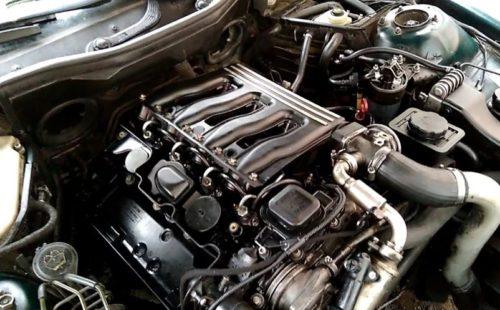
The most common cause of breakdowns is the loosening of flap attachment points. This defect can be detected by ear. Fuel injectors often fail or the pulley breaks. However, these defects are not considered typical.
3.0d N57
This BMW engine is equipped with a triple turbocharging system. The models pair well with all-wheel drive. Production of the unit started in 2008. Experts note that this power unit is capable of showing high performance. However, maintenance requires significant financial investments.
Characteristic failures include timing chain grinding. During operation, the tension of the element gradually weakens. As a result, the engine's performance decreases. Intake channels are prone to coking. The power unit is incredibly demanding in terms of fuel quality.
Conclusion
There are no perfect BMW engines. All units are prone to breakdowns. However, BMW power units have won incredible love from car enthusiasts.



